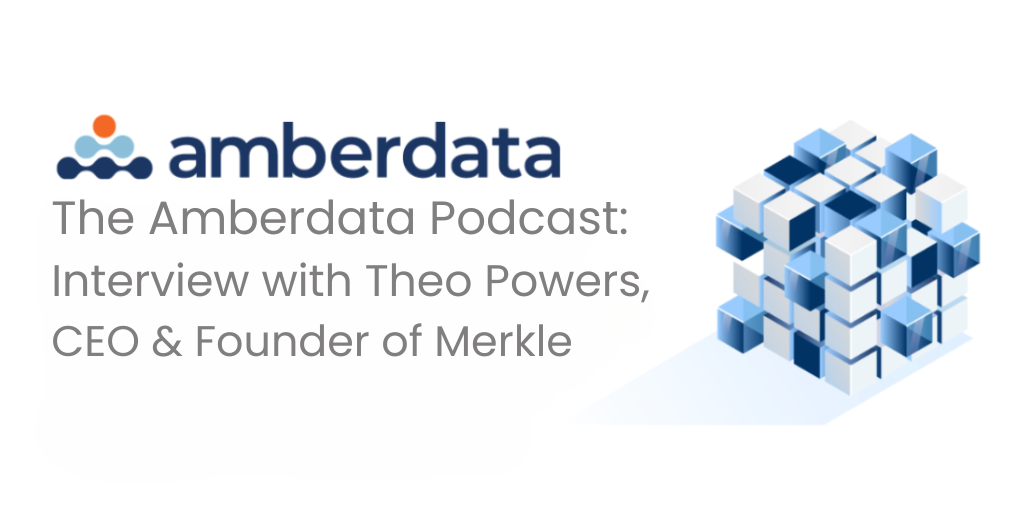Amberdata Podcast #11: Theo Powers Talks MEV & Mempool via Merkle

Welcome to Amberdata's Podcast series featuring leaders in the Crypto space where we go in-depth and dive into various topics.
In this episode, Chris Martin, Amberdata's Director of Research, interviews Theo Powers, CEO & Founder at Merkle.
Disclaimer: This podcast is for educational purposes only. Nothing here is trading advice or solicitation.
Theo Powers, CEO & Founder of Merkle joins Chris Martin to discuss everything MEV andmempools, including how mempools and private mempools work, why MEV is important, and the key difference between good and bad MEV.
MEV and Arbitrage Trading:
MEV refers to the practice of making money by observing and extracting value from the blockchain. One common form of MEV is arbitrage trading, where bots exploit price differences between different exchanges to make a profit. High-frequency trading firms often perform arbitrage between centralized exchanges like Binance and decentralized exchanges like Uniswap to take advantage of price discrepancies.
Sandwich Attacks:
Sandwich attacks are a type of MEV strategy where bots insert transactions before and after a user's trade, exploiting the slippage tolerance set by the user to make profits. These attacks manipulate the price to create slippage and extract value from the user's trade.
Private Mempool (MEV Protection):
Merkle's core product is a private mempool that they offer to RPC (Remote Procedure Call) providers and wallets for MEV protection and extraction. The private mempool keeps transactions hidden from other bots and attackers, reducing the likelihood of sandwich attacks and other MEV-related issues.
Benefits of Private Mempool:
Using a private mempool allows users to transact with reduced risks of front-running and sandwich attacks. By protecting transactions from MEV extraction, improves overall user experience and ensures better privacy for users' trades.
MEV Redistribution:
Merkle aims to redistribute MEV revenue to various stakeholders to create a more equitable and sustainable ecosystem. Currently, MEV revenue is heavily concentrated among validators, and Merkle's goal is to give a significant portion of it back to protocol developers, wallets, and users.
Network Support:
Merkle currently supports Ethereum, and they recently launched support for Polygon. They are planning to extend their support to other networks like Binance in the future. However, the level of support may vary depending on the network's development and capabilities.
RFQ System:
Merkle is working on an RFQ (Request for Quote) system to work with MEV bots to fill trades and provide users with the best prices when swapping on DeFi platforms. This approach aims to collaborate with MEV bots rather than work against them to optimize users' trading experiences.
Overall, Merkle's work revolves around using MEV for positive outcomes, promoting better user experiences, and finding win-win solutions in the blockchain space. Their private mempool service seeks to address the issues of front-running and sandwich attacks, making DeFi and other blockchain transactions more secure and efficient for users.
For high-quality, granular data feeds reach out to hello@amberdata.io to inquire about our API solution.
To view our previous episodes, visit Amberdata's YouTube channel!
For more information visit:
Amberdata
Amberdata is the leading provider of global financial infrastructure for digital assets. Our institutional-grade solutions deliver data, analytics and comprehensive tools and insights that empower financial institutions to research, trade, and manage risk and compliance in digital assets. Amberdata serves as a...
